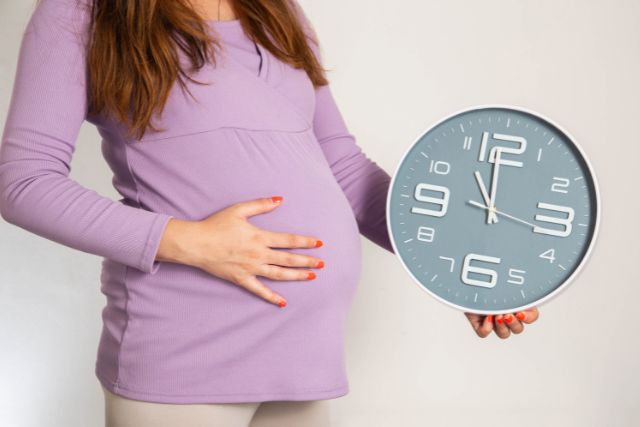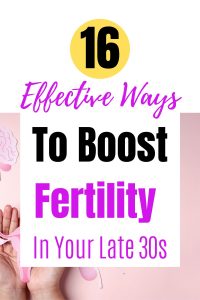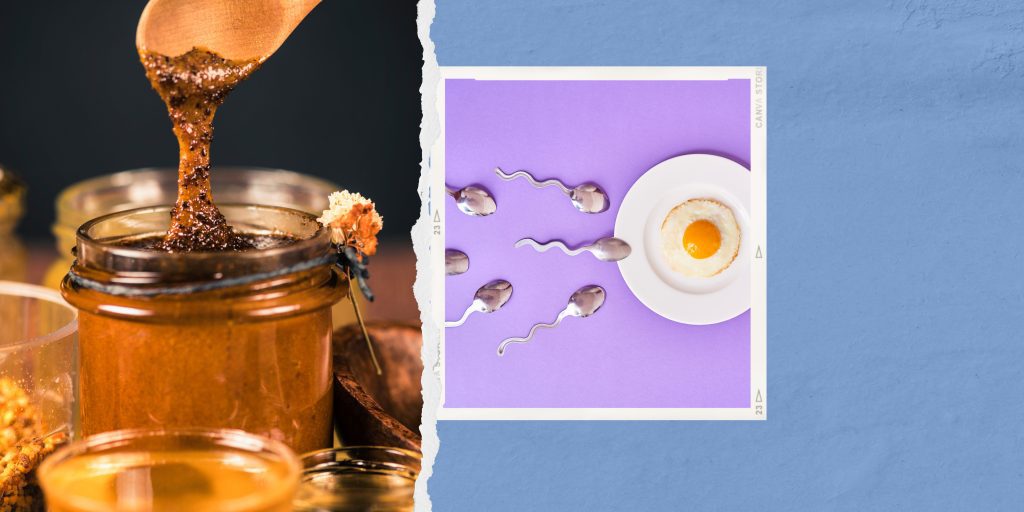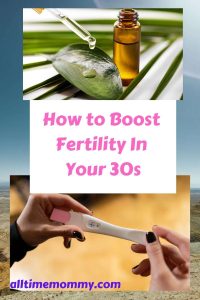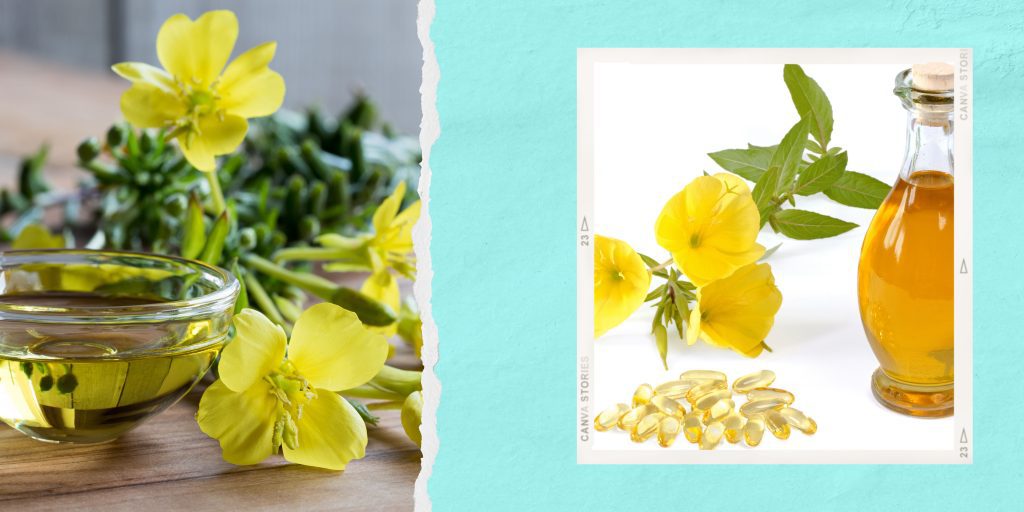Unlock the secrets on how to boost fertility in your 30s with expert tips and lifestyle changes. Discover best advice on nutrition, exercise, and stress management to enhance reproductive health.
Infertility is an issue that has thrown many couples into depression. Even though kids are gifts from God, many communities still look down on individuals, more so women who have failed to conceive.
And it even becomes worse as you age. That is why if you choose to wait, you need to know how to boost fertility in your 30s and beyond.
According to studies, at least 10% of women have infertility of some kind.
These infertility-related issues may range from irregular periods, PCOD or PCOS, and Fibroids. And, they contribute a great deal to hindering conception and pregnancy.
That is why learning how to boost fertility in your 30s with PCOS becomes essential.
This post highlights how to boost fertility in your 30s naturally. But before then, let’s first get some background on egg fertilization and conceiving in women.
Here we go;
Egg Fertilization and Conception in Women
For pregnancy to occur, every step of the human reproduction process has to be fulfilled. The stages in this process are:
- At least one of the two ovaries releases a mature egg.
- The Fallopian tube picks up the released egg from the ovary.
- Sperm swim up the cervix through the uterus. Then goes into the Fallopian tube to reach the egg for fertilization.
- The fertilized egg travels down the Fallopian tube to the uterus.
- The fertilized egg implants inside the uterus for growth.
In women, several factors can disrupt this process at any step. These factors may include;
- Poly cystic ovary syndrome (PCOS). PCOS is an ovulation problem due to hormonal imbalance, and it affects the ovulation process.
- Hypothalamic dysfunction. This condition occurs when the two hormones responsible for stimulating ovulation are not adequately produced. The production of these hormones— follicle-stimulating hormone (FSH) and luteinizing hormone (LH) occurs in the pituitary glands. Any anomalies like engaging in excess physical activities, stress, and weight issues may disrupt the production of these hormones, resulting in irregular periods and low chances of ovulation.
- Primary ovarian insufficiency. This condition occurs when your ovary does not produce mature, healthy eggs. Premature ovarian failure can occur due to genetics, advanced age, or chemotherapy.
- Too much prolactin. This is a condition whereby the pituitary gland may cause excess production of prolactin. This may reduce estrogen production and can cause infertility.
- Irregular or problems with menstrual cycles
- Damage to Fallopian tubes; may result in the inability of the fallopian tubes to pick up the released egg by the ovary during ovulation. Also, blocking Fallopian tubes may keep an egg and sperm from uniting.
- Endometriosis occurs when other extra tissues grow in the uterus, thus hindering or may disrupt egg implantation after fertilization.
Related:
Age and fertility: How Does Age Affect Fertility and Pregnancy In Women?
Affiliate Disclosure: As an Amazon Associate, I get a small commission for purchases made from Amazon.com through links in this post. Learn more about our affiliate disclaimer here.
How to Boost Fertility in Your 30s Naturally
1. Consume More Antioxidants to Deactivate Harmful Radicals
Medics advocate for couples trying to conceive to eat foods rich in Antioxidants.
This is because they deactivate the harmful radicals in your systems with the potential to damage the sperm or egg cells.
One study shows that eating antioxidant foods like folate increases the chances of implantation, pregnancy, and live birth.
Try eating more folate and zinc when trying out for a baby. These supplements may improve your fertility and that of your spouse. Other foods that you may incorporate into your diet include;
- Leafy green vegetables
- Whole grains
- Nuts
- Fresh Fruits
Are you wondering how to boost fertility in your 30s? Consume More Antioxidants. These foods contain vitamins C and E, folate, beta carotene, and lutein, effective for boosting fertility in women.
2. Relieve Your PCOS with Freshly Grounded Cinnamon
Wondering how to boost fertility in your 30s? consume freshly grounded cinnamon. Besides being a spice with the sole purpose of adding taste to food, Cinnamon possesses many other health benefits.
One study suggests that Cinnamon consists of therapeutic abilities to treat PCOS, which is one of the reasons for secondary fertility.
Although further studies are still in clinical trial stages, fertility specialists have expressed optimism about the ability of Cinnamon to enhance fertility.
When combined with other fertility boosters like clomiphene citrate, Cinnamon is thought to induce ovulation in women with PCOS.
Does cinnamon powder boost ovulation?
Women with irregular cycles find it challenging to track their ovulation and have delayed conception. Cinnamon helps improve fertility by regulating the menstrual cycle, especially in women with PCOS.
Additionally, it helps with metabolism and regulation of the menstruation cycle, thus increasing your chances of conceiving.
How to use Cinnamon for fertility
You may take cinnamon tea by adding 2 teaspoons of cinnamon powder to a cup of hot water or warm milk. You may also add honey to taste.
Also, you can sprinkle freshly ground Cinnamon onto your breakfast like cereals every morning. Adding honey or whole milk may offer a significant boost to fertility.
You may also take cinnamon supplements after consultation on the correct dosage by your doctor.
3. Improve Your Egg Quality with Honey/ Bee pollen/ Bee propolis/ Royal jelly
Great historians will agree that honey was used for fertility in ancient Egyptian countries.
A study that sought to establish the role of honey in modern medicine suggests that honey is not only a great immune booster but honey bee pollen can improve egg quality and general fertility.
According to this research, consuming quality honey like this one with warm milk was thought to improve fertility in men with impotence issues.
Similarly, it significantly improved fertility in women with erratic ovulation issues.
Additionally, another research found that couples struggling to conceive naturally when they underwent vaginal application of bee honey and royal jelly around the time of sexual intercourse improved the motility of sperms.
Is honey good for ovulation?
Yes. Studies suggest that honey is rich in B vitamin, iron, calcium, and amino acid content and thus , can improve egg quality and general fertility in women. Also, it can enhance serum testosterone concentration, sperm count, and fertility in men.
How to Get Pregnant Faster:17 Easy Tips for Increased Chances of Conceiving
4. Say No to Trans-fat Oil
Healthy fats are great for boosting fertility in both females and males.
According to research, eating a diet high in trans fatty acids (TFAs) is thought to affect reproductive health and reduce the chances of conceiving.
The study suggests that TFAs may change the membrane lipid composition of sperm morphology in men and ovum quality in women, leading to impairment in the metabolic pathway.
Trans fats may negatively affect insulin sensitivity and increase the risk of ovulatory infertility.
Consequently, the study conducted between 2007 and 2017 shows that TFAs may adversely affect gestational time-frame, leading to fetal developmental defects and loss.
To be safe, try to avoid hydrogenated vegetable oils, some margarine, and processed products, when trying to conceive.
5. Boost Your Fertility With Guava Leaves
Can guava leaves help to get pregnant?
Owing to its high antioxidant level, guava leaves are thought to increase the chances of fertility in both males and females.
One study that sought to establish the effect of guava extracts on the quality of sperms using rats found that ethanol extract of guava leaves has a beneficial impact on gossypol-associated sperm toxicity. And may therefore enhance male fertility, possibly owing to its rich constituents of natural antioxidants.
Though there haven’t been studies that directly link guava leaves to fertility in females, there are thoughts that these leaves consist of high levels of fiber, vitamin C, and folate, which makes them effective for boosting fertility and promoting a healthy pregnancy.
Additionally, some studies reveal that guava leave extracts can effectively relive painful menstrual and uterine cramps, thus enhancing your reproductive systems.
Do you want to give it a try? Shop Now on Amazon
How do you take guava leaves for fertility?
Take 3-5 guava leaves and boil them in one glass of water for about 20 minutes. Strain it and drink the warm water.
This remedy is super effective for regularizing periods, reversing PCOS, and even weight loss.
Some women swear by these leaves’ ability to cleanse their system, especially if they have hormonal imbalances due to prolonged use of birth control methods like Depo-Provera injections. Guava leaves can help balance your hormones, thus boosting your fertility.
How do guava leaves help ovulation?
Research has used animals like rats to demonstrate the effectiveness of guava leaves on fertility.
These leaves can increase blood flow to the uterus and enhance female egg viability. They help in hormonal balancing and regulating the menstrual cycle.
6. Balance Your Hormones with Maca Plant
The Maca plant, known as Lepidium meyenii, is a cruciferous vegetable popular in Peru.
Studies have shown the numerous health benefits of Maca plant supplements, including their ability to improve women’s libido.
Maca enhances fertility by regulating hormonal balance. It is also rich in calcium, potassium, iron, iodine, copper, and zinc, essential minerals to boost fertility.
In men, studies show that consuming Maca for nine months could improve the quality of sperms. The benefits of the Maca plant include;
- Increases sexual desire
- Promotes hormonal balance
- Enhances semen production in men
- Soothes symptoms of menopause in women
- Boosts fertility
- Improves mental health
How do you take the Maca plant for fertility?
Generally, you may consume 500-3000mg of Maca daily through supplements. Also, you may use it as tincture additives to plain water, juices, and smoothies.
For the tea lovers, here is a recipe you may use to make Maca tea for fertility.
How to make Maca tea
Ingredients
- 1 cup of milk (you may choose to use whole milk, coconut milk, almond, etc.
- 1 tsp. maca grounded powder
- 1/2 tsp. ground cinnamon
- honey for taste
Preparation
- Combine all the ingredients in a cooking pot and bring to a low simmer. Ensure you continuously whisk to dissolve the maca and spices.
- Once the tea is ready, pour into a cup or a glass, and sweeten to taste with honey.
Dosage: most studies suggest using a dosage of 3 to 3.5 grams daily.Take 1 teaspoon, or 3.1 grams, of maca powder daily for 6 to 12 weeks to see the benefits.
Worthy to note is some women experience stomach upset when consuming plain maca root. Sometimes you may experience spotting when you first begin using maca.
7. Regulate Your Menstrual Cycle with Evening Primrose Oil
Evening primrose is a native plant from North America traditionally known for healing hemorrhoids, sore throats, and digestive issues.
Evening Primrose Oil is an excellent source of vitamin E and Gamma Linolenic Acid (GLA). GLA is an essential fatty acid that helps regulate reproductive hormones for effective ovulation.
One study shows that EPO can effectively treat premenstrual syndrome (PMS). This can regulate your menstrual cycle and increase your chances of conceiving.
Like flax and oil fish, the omega 6 fatty acid in EPO can increase cervical mucus and enhance fertility in women.
Also, the GLA in EPO is an ant inflammation component that may help inhibit prostaglandins known to cause cyclical breast pain during menstruation.
While there is no evidence on the standard dosage to improve fertility, taking 500-1500 mg/ EPO daily can improve your chances of conceiving.
Only be sure to take evening primrose oil up until ovulation, as it does have adverse effects in early pregnancy.
Want to give it a try? Shop now on Amazon
8. Improve your Reproductive Health with Shatavari (Asparagus racemosus)
One study suggests that Asparagus racemosus, also known as Shatavari, may help improve the female reproductive health system.
The herb, highly valued in Ayurveda and considered a female tonic, is thought to effectively balance hormones, reduce polycystic ovarian syndrome (PCOS), and aid in follicular growth.
Shatavari consists of steroidal-saponins and thus can effectively regulate estrogen for increased chances of conceiving.
Research also suggests that this herb can protect your body against stress-related infertility causes.
According to research gate, Shatavari is thought to increase libido in women, cure inflammation and moist dry tissues of sexual organs through increased cervical mucous production.
Additionally, this herb may enhance folliculogenesis and ovulation.
Dosage
I have no concrete evidence on shatavari dosage -for fertility purpose since its a wonder herb used to cure numerous female issues. Many women though suggest that adding 1/2 tablespoon of this herb to warm milk as a daily dose may do wonders to your reproductive system.
9. Boost Your Fertility with Chaste berry or Monk’s pepper
Vitex agnus-castus or chaste berry is widely known to improve conditions affecting a woman’s reproductive system.
One study suggests that the chaste berry herb can enhance female fertility by regulating hormones and reducing PCOS.
Polycystic ovary syndrome (PCOS) is an endocrine disorder characterized by polycystic ovaries and chronic anovulation. People who experience PCOS tend to have irregular menstrual cycles, acne, and infertility.
Another study that combined the use of chaste berry with other supplements like green tea and folate found that 26% of women who used the supplements containing Vitex agnus-castus became pregnant after three months compared to only 10% who conceived in the placebo group.
This study engaged 93 women who had unsuccessfully tried to become pregnant over the last 6–36 months.
Additionally, studies reveal that Vitex agnus-castus is effective in regulating menstrual periods, improving PMS, and reducing menopausal symptoms, which highly contribute to infertility in women.
10. Add a Multivitamin into Your Diet
Multivitamins are great when it comes to enhancing ovulation. Studies show that consuming micronutrients in your vitamin supplements may significantly improve fertility in women.
In fact some studies suggest that about 20% of infertility associated with ovulation can be avoided if women consume the right vitamins before trying to conceive.
Please do not blindly buy and consume any multivitamin for fertility as they may not work out.
Talk to your doctor about your body needs if you’re trying out for a baby to get the best multivits that suit your needs. For instance, fertility multivitamins that are rich in folate can be excellent if you are thinking of conceiving.
11. Get Active and Keep Fit
Hypothalamic dysfunction is a condition that can cause infertility in women. It occurs when you interfere with the production of stimulating follicle hormone (FSH) and luteinizing hormone (LH), which play a significant role in stimulating ovulation.
But why am I giving you this history?
Because medics site anomalies like excess physical activities as part of the causes of hypothalamic dysfunction. Also, you may suffer the same fate if you’re emotionally stressed, obese, or underweight.
So if you’re trying to conceive, you need to remain active without overdoing it. The trick is to do everything in moderation.
One study shows that intensive exercises may interfere with the energy balance in your body, thus affecting your reproductive health.
Similarly, some research has linked obesity and underweight to low fertility in both men and women. so choose your meals and exercise plans wisely if you’re planning for a baby soon.
12. Boost Ovulation with Tribulus Terrestris Herbs
Looking for ways on how to boost fertility in your 30s? try Tribulus herbs. Tribulus Terrestris is an annual shrub that grows in the Mediterranean. Its mostly known for its medicinal value.
According to a publication in science direct, this herb is considered a general tonic, aphrodisiac, estrogen, and androgenic modulator. It can also help restore vitality and libido, and reduce the physiologic effects of stress, thus boosting fertility.
Although limited, some studies suggest that combing Tribulus Terrestris with other herbs like Vitex and Cinnamon could help improve fertility in women.
Tribulus Terrestris is thought to help stimulate ovulation and regulate the menstrual cycle.
In fact, according to the study, these herbs can enhance ovulation, improve metabolic in reproductive hormones profile, and enhance fertility outcomes in women with PCOS.
13. Add Sweet Potatoes to Your Diet
Sweet potatoes may be beneficial when it comes to fertility in women. They contain beta carotene and are rich in vitamin A which gives them the ability to strengthen and protect the uterus.
According to research, vitamin A is essential in matters reproductive in both men and women. Its needed right from conception and to aid in healthy fetal development.
Also, the nutrition content of sweet potatoes, like high levels of iron, magnesium, calcium, and folate, may help produce and regulate sex hormones.
The amazing thing with sweet potatoes is that they are readily available and affordable. You may choose to either boil, roast or bake them for a delicious breakfast.
14. Add Probiotics to Maintain a Good pH Balance
Adding probiotic-rich food into your diet is good for your guts and may help maintain a good pH balance in your vagina.
If you’re trying to boost fertility in your 30s, you must ensure that all factors favor your decision.
Get the suitable pH for sperms to survive so that fertilization of the egg can occur.
One study showing the effect of vaginal pH on sperms noted that at a pH of 4.0, sperm were rapidly immobilized. In fact, researchers pointed out that the immobilization happened within 1 min, and it was irreversibly.
The speed of immobilization and killing sperms was found to be linearly proportional to hydrogen ion activity over a pH range of 7.5-4.0.
Some studies suggest that probiotics can help treat PCOS, reduce inflammations and regulate sex hormones like estrogen.
How do I maintain vaginal pH when trying to conceive?
The best way to maintain a suitable vaginal PH when trying to conceive is to incorporate probiotics into your diet and embrace proper body hydration.
Probiotics will help strike a balance between good and harmful bacteria, thus ensuring the desirable pH in your vagina. Similarly, you need to drink lots of water to support the cervical mucus membrane to remain healthy and operate optimally.
How do I know if my pH balance is off?
There are several symptoms indicating that your vaginal PH is off. These include;
- Undesirable vaginal smell.
- Increased and smelly vaginal discharge.
- Itching around the vulva.
- Irritations and burning sensation while urinating.
- Track your ovulation and act accordingly
Related: 11 Reasons Why Every Woman Needs a Probiotic Once In a while
15. Track Your Ovulation and Act Accordingly
As a woman, you only have one chance in a month to get pregnant, and that is during ovulation.
There is no point in consuming all these herbs when you can not track your ovulation and act accordingly. And by acting according, I mean having more sex around your fertile period.
The menstruation cycle begins on the first day of your period and lasts till the first day of your next period.
The only things that change in between are menstrual phases, governed by different reproductive hormones.
one of these four phases is ovulation. It happens around 12 to 14 days within a cycle, and it’s the most fertile time characterized by the release of an egg from the ovary, ready for fertilization.
Please take note of your ovulation using a predictor kit and make maximum use of it. To be sure, to maximize your lovemaking sessions from day 11 to day 16.
Best ovulation strips and predictor kit
Related:
The Stages of Menstrual Cycle Every Woman Should Know
16. Work on Your Stress Levels
I understand, mama. The anxiety and pressure accompanying the demands of having a baby can throw your emotions off balance.
But can your emotional stress interfere with your ability to conceive? Well, according to a study, high emotional stress can cause delayed conception or impose female reproductive health issues.
Even as you wait upon God, you need to work on stress that relates to infertility.
Try focusing on other activities that keep you busy and distract your mind from having a baby. You may also engage professional counselors to help you walk the journey.
If your environment is toxic, try talking to your partner and relocating to avoid unnecessary pressure that may lead you to depression.
Exercising, yoga and journaling are also effective ways of releasing stress. Above all, avoid solitude. Find like-minded people or groups that can encourage you to hold on.
Related:
7 Powerful Natural Remedies to Get Rid of Vaginal Yeast Infection in Just 3 Days
Take Away
Even though science suggests that fertility in women drops with age, I firmly believe that children are gifts from God and only God’s time is the best. This post has highlighted how to boost fertility in your 30s naturally. Do what you can in your human power using these few tips on boosting fertility with a positive mind that with God, nothing is impossible.
All the best, mama.
I am looking forward to your feedback and testimonies in the comments below. Also, be sure to share this post.
DISCLAIMER The information contained in this post is for general information purposes only. I’m not a health practitioner and as such, this information should not be used as a substitute for consultation with your professional service provider.
UP NEXT
- 7 Simple Diet Tips to Fight Recurring Candida Yeast Infection
- Probiotics and Weight Loss: How Do Probiotics Help You Lose Weight And Belly Fats
- 18 Dangerous Teas That Cause Miscarriage During Pregnancy
- 10 Most Important Pregnancy Nutrients for a Wholesome Baby Development

